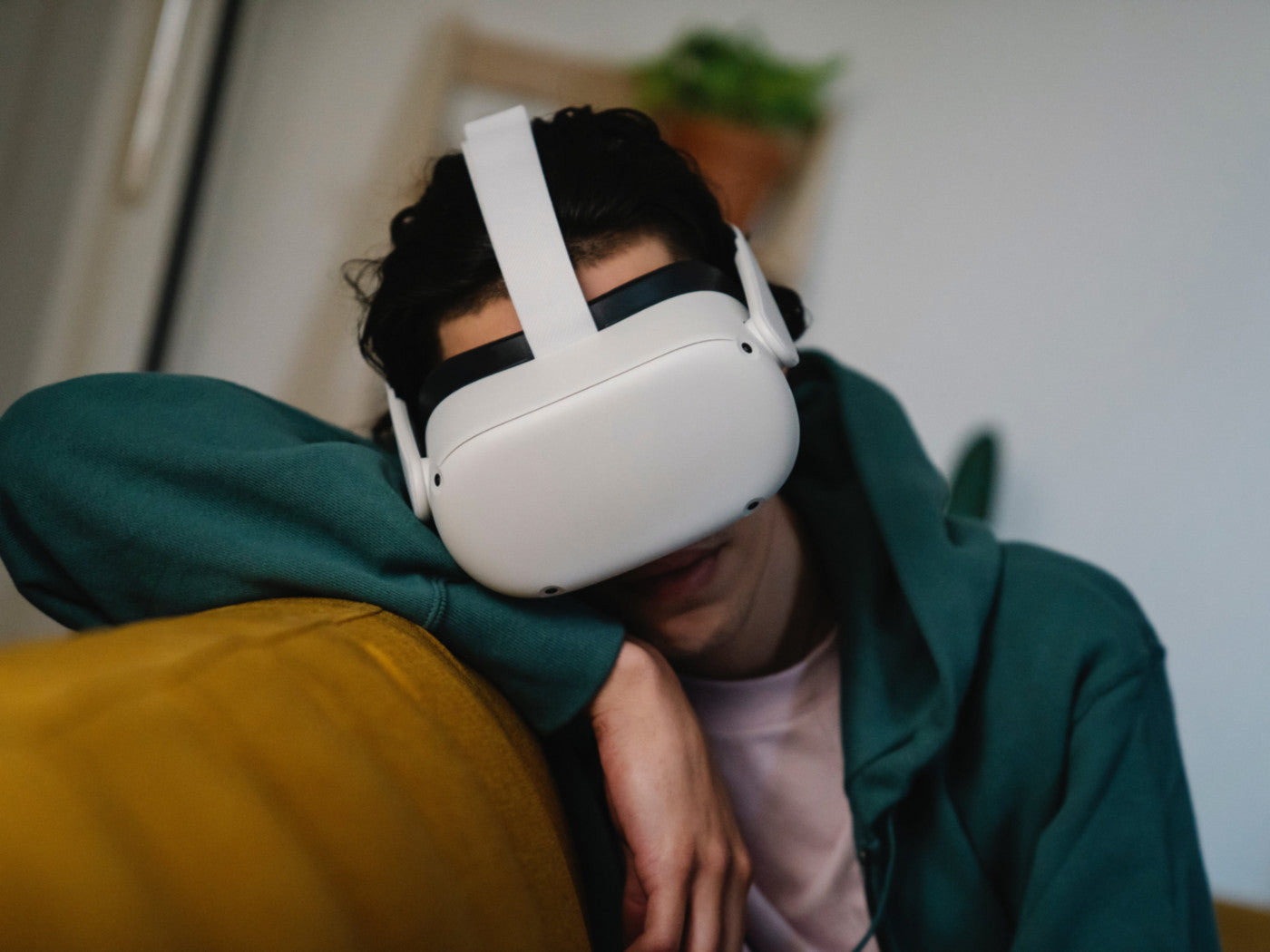The intersection of technology and our daily lives continues to evolve, with VR emerging not only as a platform for immersive gaming and entertainment but also as a surprising ally in enhancing our sleep experiences. While conventional wisdom may caution against prolonged screen time before bedtime, the landscape shifts when we enter its world.
In this article, we explore the potential benefits, safety considerations, and the fascinating ways in which VR technology is being harnessed to promote relaxation and improve the quality of sleep.
How Long Should You Play VR?
Extended VR use can strain the eyes, leading to discomfort and fatigue. To mitigate these issues, users are advised to adhere to recommended durations, taking regular breaks to allow their eyes to rest. Implementing the 20-20-20 rule, where users look at something 20 feet away for 20 seconds every 20 minutes, can significantly reduce eye strain.

Prolonged exposure to virtual environments may also trigger motion sickness in some users. To combat this, individuals should start with shorter sessions and gradually increase duration as they acclimate to the immersive experience. Choosing VR content with minimal motion intensity can also help prevent motion sickness.
Impacts of Prolonged VR Use
1. Sleep Disruption
VR headsets, like many electronic devices, emit blue light, a wavelength known to suppress the production of melatonin—a hormone critical for regulating sleep-wake cycles. Prolonged exposure to blue light, especially during the evening, can lead to difficulty falling asleep and compromised sleep quality.
2. Heat and Discomfort
VR headsets generate heat during use, potentially causing discomfort over time. Ensuring proper ventilation and taking breaks to cool down can prevent overheating issues. Users should also be aware of the headset's fit to avoid unnecessary pressure on the face and head.
3. Physical Health
Extended use of VR may lead to physical discomfort or strain. Proper ergonomics and regular breaks are essential to minimize the risk of discomfort or musculoskeletal issues, ensuring users can enjoy VR experiences without compromising their physical well-being.
4. Psychological Impact
Prolonged exposure to intense or immersive VR content may have psychological effects on some individuals. Users should be conscious of the emotional impact of VR experiences and take breaks when needed to maintain a healthy mental state.
Can VR Be Worn While Sleeping?
Wearing a VR headset for an extended period can be uncomfortable and the straps may cause pressure on the head and face. Sleeping with a VR headset on could compromise your comfort and potentially pose safety risks. Exposure to the light emitted by VR screens, even during sleep, may disrupt circadian rhythms and melatonin production, potentially affecting the natural sleep-wake cycle.

Most VR headsets also have limited battery life. Sleeping with a VR headset on could drain the battery quickly, interrupting your immersive experience and potentially damaging the device if not handled properly.
Recommended Blogs:
- Can You Play The Meta Quest 3 Outdoors?
- Can You Play The Meta Quest 2 Outside?
- Can You Wear Glasses While Playing PlayStation VR?
Recommended Meta Quest 3 Accessories:
1. ZyberVR Quest 3 Elite Strap
2. ZyberVR Neck Power Bank
3. ZyberVR Black Sling Bag
4. ZyberVR Link Cable
5. ZyberVR Quest 3 Multipurpose Handles
6. ZyberVR Quest 3 Prescription Lenses (Coming Soon)
7. ZyberVR Quest 3 Battery Head Strap (Coming Soon)
Conclusion
While VR can offer relaxation and immersive experiences conducive to better sleep quality when used appropriately, it comes with its set of challenges. Implementing best practices, such as limiting VR use before bedtime, customizing the VR sleep experience, and utilizing VR as a sleep aid consciously, can contribute to a more seamless and enjoyable virtual reality experience.





